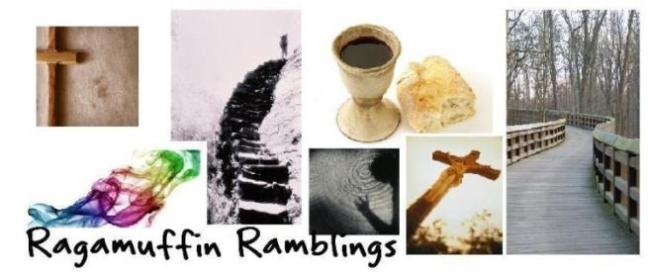Yes, I know that according to the Revised Common Lectionary, we are at the Second Sunday in Epiphany. We can't talk about Christmas, for cryin' out loud, right?
Well, for all of you who find such violations of the "church calendar" heretical, I have three words: get over it.
In following a couple blog-bunny-trails from penni/martha's blog, I found Sister Mary Martha's post about spiders at Christmas, and I felt (for whatever cornball reason) compelled to share this story. I don't remember who told it first, or last, for that matter. But while I certainly loathe spiders (certainly on the top-20 list of everyday things I loathe), I do enjoy telling this particular story about one particularly generous spider. I guess I enjoy it because the theme is a recurring one in my life - one's ugliness and self-revulsion, overcome by the gifts one offers to the Savior. So, Sister, I offer you...
I understand that the original story may be Polish or eastern European in origin. If nothing else, it's a great story of sharing the gifts that one has been given - another constant theme in my own life...The Spider's Christmas Gift
In a barn in a distant village, there once lived a spider. He was well-liked by all the other creatures who lived in the barn, for he had a good and loving heart. But one day, after a rainstorm, he chanced to see his reflection in a puddle of rain-water. He could not see himself as the other animals saw him, but instead he saw only a multitude of skinny, hairy legs and a heavy, misshapen body.
Despising his appearance, he climbed up into the very highest rafters of the barn and hid himself away, determined not to inflict his ugliness on the other animals, lest they tease or reject him. The only thing he did to pass the time was weave intricate and beautiful webs out of gossamer threads, and hang them from the barn's roof beams. Sometimes, on humid mornings when the dew was heavy, these delicate artworks would gather drops of dew, reflecting the early morning sun.
The barn animals would be amazed at their beauty, and call out in joy to the artist. But the spider was ashamed, thinking only of his appearance, and could not hear their words of praise. So he hid in the dark recesses of the rafters until night-time, when he could continue his weavings in solitude and anonymity.
One cold night, the doors to the stable flew open, and in came a man, and his wife who was heavy with child. It soon was obvious that the time had come for the child to be born, but there was no place for these two travelers among the rest of the humans, so they had been exiled out with the animals in the stable.
The woman gave birth; the newborn baby was wrapped in rough swaddling clothes and was laid in a bed made out of the hay in the feed-trough. Star-light from heaven shone on the Child, showing him to be a gift from Heaven sent to that lowly place.
It was soon clear that the baby, though healthy, was extremely cold. Yet neither the parents nor any of the animals in the barn could help - there were no blankets or other cloths left to use, and none of the animals could give of their fur to help the shivering Child. Each of the creatures cried, whinnied, bleated and neighed, "Who can comfort this heaven-sent Child?"
From his vantage point in the rafters, the spider was given a wonderful idea. He raced from rafter to rafter, gathering all the beautiful webs hanging from the roof-beams, and stitching them together, layer after layer after layer of intricate web.
The products of year after year of the spider's work were woven together, until they formed a wondrously white blanket. And on a gossamer thread, the spider lowered the blanket down onto the manger and the baby. The holy Child's shivering ceased, and the grateful Mother smiled her thanks. "Thank you for your blessed gift, dear spider! May your weavings continue so long as the sun rises, o shy one, and may your threads never run out!"
Later, shepherds and wise men arrived bearings gifts - but the first gift to the Christ-child was given by one who felt himself unworthy to be seen.
Thus it is (to this very day) that some cultures consider spiders to be a sign of luck or blessing at Christmas, and we remember the spider's gift with shiny gossamer strands on our Christmas trees.
[back into Marty McFly's theological DeLorean, to take you back to your regular liturgical season...]

3 comments:
I think that the story is Polish, because I heard it as a kid from Polish Catholics.
Oh, and what was this about CAMP in your earlier post?
Is talented golden-boy Vlad honest in his feelings about Ellen? Can cross-dressing Michael have a relationship with his parents? Will one-hit-wonder musical playwrite and now camp counselor Bert Hanley remain mired in drink and cynicism?
Inquiring minds want to know ...
Love those midrashes, Steve man!
A great story for any season, whatever it's origin, and I wish I had heard it in time to include it in my own Epiphany reflection.
Post a Comment